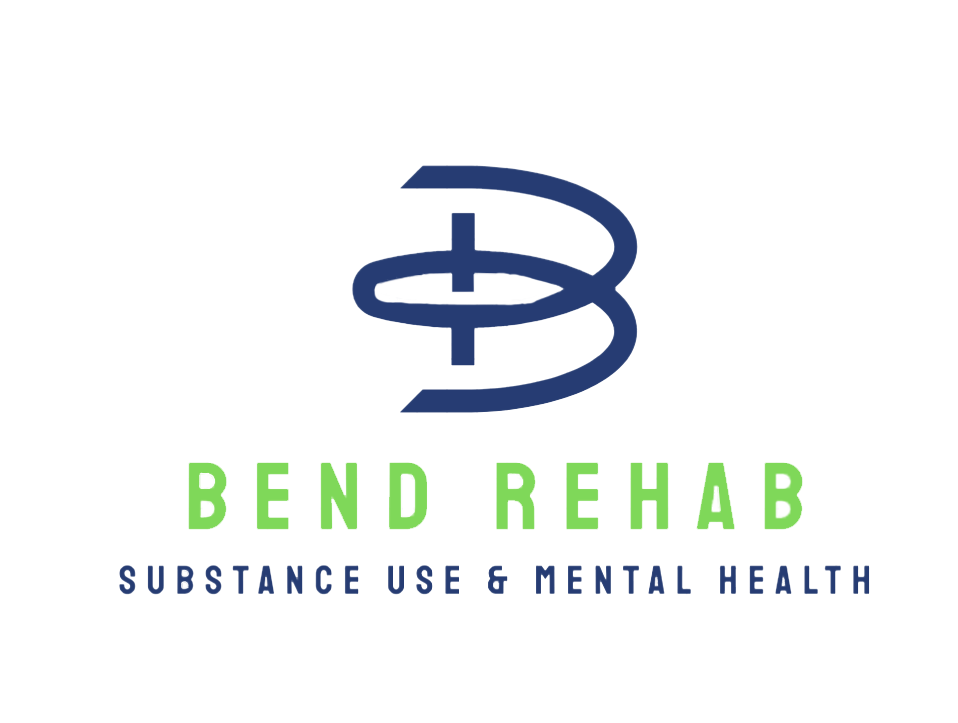Inpatient Drug Rehab in Bend
Recovering from addiction is an incredibly personal and challenging process. However, choosing the right support system can make all the difference. Bend, Oregon, is home to several highly regarded inpatient drug rehab programs, offering individuals a structured, compassionate environment to begin their sobriety journeys. For those taking the first step towards recovery—or for the families and support systems standing by their loved ones—understanding the process and resources available can pave the way for long-term success. This article will explore the details of inpatient drug rehab in Bend, including the benefits of inpatient programs, therapies offered, and tips for maintaining sobriety after treatment. If you or someone you love is considering rehab, read on for a comprehensive guide to getting started.
Understanding Addiction
Addiction is not simply a lack of willpower—it’s a complex brain disorder with profound effects on physical, emotional, and social well-being. Prolonged substance abuse often leads to physical dependence, withdrawal symptoms, and declines in overall health. But the damage goes beyond the body. Emotionally, addiction can trigger deep-seated feelings of shame, anxiety, and depression. Socially, it may erode relationships, strain family bonds, and reduce professional and financial stability. Acknowledging addiction as a medical condition requiring professional treatment is critical to recovery. Many in Bend—and surrounding areas—are turning to inpatient facilities for the comprehensive, focused care they offer.
The Benefits of Inpatient Drug Rehab
Why choose inpatient drug rehab over other treatment options? Here are key advantages:
- Structured Environment: One of the biggest challenges in early recovery is avoiding triggers. An inpatient program removes individuals from environments where substance use may occur, providing a safe space to focus solely on healing.
- Round-the-Clock Support: From medical detox to emotional counseling, inpatient facilities offer 24/7 professional care tailored to individual needs.
- Peer Support: Being surrounded by others who are on the same path fosters camaraderie, accountability, and an understanding that you’re not alone in the fight against addiction.
- Therapeutic Immersion: Unlike outpatient care, inpatient rehab immerses patients in daily therapy, from individual sessions to group discussions and skill-building activities.
For residents of Bend, inpatient drug rehab programs are an invaluable resource—whether you’re stepping into recovery for the first time or recommitting to sobriety after relapse.
What to Expect in an Inpatient Drug Rehab in Bend
Every recovery experience is unique, tailored to meet individual needs, but here’s an overview of what a typical stay might look like in an inpatient facility in Bend. From the moment of admission, a dedicated team conducts a thorough assessment to create a personalized care plan that addresses each individual’s specific challenges and goals. These facilities provide a structured environment designed to promote healing, with daily therapeutic activities such as group therapy sessions, individual counseling, and holistic options like yoga or mindfulness exercises. Residents benefit from round-the-clock support, ensuring they feel safe and cared for at all times. Nutritional meals, recreational opportunities, and a supportive community are also integral parts of the experience, helping individuals build the skills and resilience they need for long-term recovery. From admission to discharge, every step is focused on creating a strong foundation for a healthier, more fulfilling life.
Admission and Intake
On arrival, individuals undergo a thorough assessment designed to create personalized treatment plans that meet their unique needs. This process typically involves comprehensive medical exams to evaluate physical health, psychological evaluations to understand mental well-being, and in-depth discussions about personal goals and preferences. These assessments ensure that every aspect of the individual’s situation is considered, allowing for a treatment plan that is both effective and aligned with their objectives.
A Day in Rehab
A structured daily schedule is vital for fostering new habits and creating a sense of stability in your routine. Expect a day packed with carefully planned activities, including therapy sessions designed to address your individual needs, healthy meals that nourish both the body and mind, and group activities that encourage social connection and support. There’s also time set aside for exercise to boost physical health and mindfulness classes to promote mental clarity and relaxation. This structured approach not only keeps you engaged but also helps replace old, unproductive routines with healthier, more sustainable practices, setting the foundation for long-term well-being.
Supportive Networking
Recovery thrives on connection, as building relationships and fostering support are key components of the healing process. Group therapy and support groups provide safe and non-judgmental spaces where individuals can openly share their experiences, listen to others, and grow alongside peers who understand their struggles. These environments promote a sense of belonging and solidarity, helping participants feel less isolated in their journey. The intense focus and mutual support in these groups ensure that individuals address not only the physical aspects of addiction but also the underlying mental and emotional triggers that contribute to it. This holistic approach strengthens resilience and equips individuals with the tools needed for lasting recovery.

Types of Therapies Offered
Modern inpatient rehab centers use evidence-based practices to treat addiction holistically. Common therapies include:
- Cognitive Behavioral Therapy (CBT): Helps identify and change negative thought patterns that contribute to substance abuse, providing individuals with healthier coping mechanisms and improving their overall mental well-being.
- Dialectical Behavior Therapy (DBT): Often benefits individuals who are struggling with both addiction and difficulties in managing their emotions, providing them with tools and strategies to support recovery and improve emotional well-being.
- Holistic Therapies: Programs often offer activities such as yoga, art therapy, or mindfulness exercises to promote overall well-being. Yoga helps improve flexibility and reduce stress, art therapy provides a creative outlet for self-expression, and mindfulness exercises encourage relaxation and present-moment awareness, all contributing to a healthier mind and body.
Individual and group therapies play complementary roles in recovery. While personal counseling addresses deep-seated issues, group discussions enhance communication and empathy.
Specialized Programs for Unique Needs
Many inpatient facilities in Bend recognize that every recovery path is unique. Tailored programs cater to specific populations, offering focused support, such as:
- Veterans struggling with PTSD often face the additional challenge of addiction, creating a complex cycle that can be difficult to break. These individuals frequently require comprehensive, specialized support and treatment programs that address both conditions simultaneously, ensuring they receive the care needed to heal mentally, emotionally, and physically.
- Women facing the complex challenges of substance abuse while managing the demanding responsibilities of motherhood, including providing emotional support, ensuring their children’s well-being, and maintaining a stable home environment, often under immense pressure and limited resources.
- Patients managing dual diagnoses, such as addiction paired with mental health conditions like depression or anxiety, often face unique and complex challenges that require specialized care. These individuals not only navigate the symptoms of their mental health condition but also cope with the struggles and triggers associated with addiction. Tailored treatment plans are essential to address both issues simultaneously, ensuring that the interconnected nature of mental health and substance use is considered. Without this integrated approach, treating one condition without addressing the other can hinder long-term recovery and overall well-being.
These tailored programs ensure that treatment is inclusive, nuanced, and relevant to individual struggles.
Facilities and Amenities in Bend
The environment where recovery takes place can significantly influence outcomes. Most inpatient rehab facilities in Bend provide serene surroundings and high-quality amenities, such as:
- Comfortable and private living quarters, thoughtfully designed to create a cozy and tranquil space where you can relax and unwind after a long day. Each room features plush furnishings, soft lighting, and carefully chosen decor to ensure a warm and inviting atmosphere, offering the perfect retreat from the stresses of daily life.
- Recreational facilities thoughtfully designed to promote physical wellness, offering a variety of spaces for exercise, sports, and relaxation activities. These include fully equipped gyms, outdoor sports courts, yoga studios, and designated areas for meditation or leisurely unwinding, catering to diverse fitness and wellness needs.
- Peaceful outdoor spaces thoughtfully designed for reflection, relaxation, and connecting with nature. These areas feature lush greenery, calming water features, and comfortable seating, providing a serene escape from the hustle and bustle of daily life where you can unwind, recharge, and find balance.
These added comforts create a sense of home, making the experience less intimidating and more conducive to healing.
Success Stories from Bend
Hearing from others who’ve succeeded in their recovery can be a powerful motivator. Take James, for example—a Bend local who battled addiction for over a decade. After entering an inpatient rehab program, he learned to confront his triggers and build healthier relationships. Today, James has been sober for three years and volunteers to help others on their recovery journeys. Stories like James’ prove that recovery is both possible and rewarding. They remind us that every step—no matter how uncertain at first—is a step toward a brighter future.
Choosing the Right Inpatient Rehab Facility
With so many options available, how do you choose the best rehab center in Bend? Here are some factors to consider:
- Accreditation and Licensing: Verify that the facility is fully accredited and holds all necessary licenses, ensuring it complies with state and federal regulations for safety, quality, and operational standards.
- Staff Credentials: It’s essential to have qualified professionals with the right experience in addiction treatment. Look for staff members who are not only certified but also have a proven track record of working with individuals facing similar challenges. Their expertise and compassion can make a significant difference in the recovery process.
- Treatment Philosophy: Does the center take a holistic approach, addressing not just the physical aspects of recovery but also focusing on mental and emotional healing? Do they integrate therapies like counseling, mindfulness, or alternative treatments to support overall well-being?
Take tours, ask questions, and trust your instincts. Your comfort with the facility can greatly influence the success of your treatment.
Life After Rehab
Completing inpatient rehab is a significant milestone, but maintaining sobriety requires continued effort. Fortunately, Bend offers abundant resources for ongoing support:
- Aftercare Programs: Many facilities include aftercare planning to help individuals maintain their progress and ease the transition back into daily life. These programs often involve continued counseling, support groups, and resources to address potential challenges and prevent relapse.
- Sober Living Homes: For individuals seeking a gradual transition from rehab to independent living, these homes offer a safe, supportive, and drug-free environment. Residents live together in a structured setting, often with house rules and responsibilities, fostering accountability and encouraging a sense of community as they rebuild their lives.
- Support Groups: Organizations like Alcoholics Anonymous (AA) and Narcotics Anonymous (NA) offer a strong network of support through local chapters in Bend. These groups provide a safe and welcoming space for individuals in recovery to share experiences, receive encouragement, and build lasting connections with others who understand the journey. Meetings are held regularly, fostering a sense of community and accountability to help you stay on track.
One step at a time, sobriety becomes a sustainable lifestyle.
Conclusion
Choosing inpatient drug rehab is an important and transformative investment in yourself or your loved one’s future. Bend offers countless pathways to recovery, each personalized to meet the unique needs of individuals from all walks of life. With a combination of expert care, evidence-based therapies, and a compassionate, supportive community, sobriety is not only achievable—it’s life-changing. Inpatient rehab provides a structured environment, free from distractions and triggers, allowing individuals to focus solely on their healing. From individual counseling sessions to group therapy and holistic treatments, these programs are designed to address the root causes of addiction while building a foundation for lasting change. Take that first step today. Reach out to our expert staff by calling 1 (541) 802-7214 or clicking Bend Rehab. Together, we can help you achieve a life of sobriety and fulfillment.




